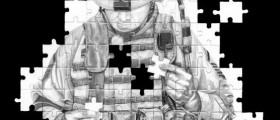
“Fear” of persecution
When it comes toself-confidence boosting feelings, which include the ones that arein a direct relation to one’s being and personality, as well as concern, and areat the root of one’s achievements, it must be emphasized that these are seldomthe result of conscious endeavor only. Most of all they can be ascribed to one’sinsight, i.e. a constituent, cognitive in nature, that represents theself-aware knowledge of a person in question regarding his/her success, qualities,skills and alike. To complement all this, there is also the emotional component, whichis again highly dependent upon one’s prior experience, various defensemechanisms, and last but not the least, one’s character.
There is also quite anumber of people who have the tendency to experience moments of utterworthlessness and unworthiness that can last for longer periods of time. Thepeople in question, however, manage to overcompensate for this emotionalconstituent by paying more attention to their cognitive side of being. The personbelonging to the above mentioned group feels no love for him/herself, but isconstantly in the mode of convincing oneself that he/she is lovable. Also,such a person has little fate and trust in him/herself, but also has the tendencyto put forth the notion of how trustworthy he/she is, complementing it withnumerous personal-experience based evidence.
The core of it all
Unfortunately, whenit comes to overcoming such, so to speak, extremes, a mere compensation of onefor another seldom succeeds. One of the most prevailing reasons forthis is that at the core of the entire matter there lies an inner dialog ledbetween the voices of criticism and the voices of the proofs constantlyemerging from one’s experience. The self-doubting in question can be a fairlypositive, and most of all a healthy thing, given the key role it plays in checks and balances, which make up a full-fledgedmature personality.
Dialog out offunction
The “faulty” dialogmentioned above is deemed responsible for addressing the questions which are utterly fundamental, such as the following:
Who am I?What are my traits, skills andachievements?To what extent am I trustworthy,truthful, reliable, lovable, and capable?What are the ways and means that willenable me to properly distinguish facts from fiction?Crucial thing to keepin mind in this case, is that the answers lie and comprise both the cognitive(i.e. empirical) and emotional constituents. Furthermore, these are known to beacquired by way of the person’s social interaction, as well as the feedback onegives and receives. If an inner dialog, which endows a person’s being, remainsconcerned with the above mentioned pangs of doubt, this is then quite a clearindicator of numerous negative issues directly related to socialisation assuch.

















Your thoughts on this
Loading...